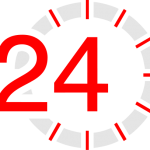 I just finished reading “Complaint is a Gift” by Janelle Barlow and Claus Moller (It is out of print.). It highlights case studies from companies who have used customer complaints as a tool to strengthen their services and products (British Airlines is one of those cited in the book.)
I just finished reading “Complaint is a Gift” by Janelle Barlow and Claus Moller (It is out of print.). It highlights case studies from companies who have used customer complaints as a tool to strengthen their services and products (British Airlines is one of those cited in the book.)
I believe our customers refer to everyone we communicate and work with. Just recently, I purchased an item that was misrepresented to me. I called the store to let them know I did not like being strong armed into purchasing this product. I was told that the product was better than the one I actually wanted to buy.
Their responsess were text book on what not to do when handling a complaint:
– They never asked my name.
– They never introduced themselves.
– They never thanked me for calling.
– They never suggested that they could have been wrong.
This will be the last time I go to this store. Their products were not less expensive than those at other stores, but their establishment was convenient for me to get to.
So, it’s good policy to treat a complaint as a gift because when it’s handled the proper way, customer loyalty usually remains intact.
 All politics aside, Secretary of State, Hillary Clinton, showed her command presence in the way she handled the four plus hours of grilling by the Senate. (We all understand the gravity of that situation.)
All politics aside, Secretary of State, Hillary Clinton, showed her command presence in the way she handled the four plus hours of grilling by the Senate. (We all understand the gravity of that situation.)
The piece that impressed me and many others (listening to the commentaries) is the discussion around what we were going to do to make sure this does not happen again. A true leader handles him/herself with composure always going back to seeking a solution to fix the problem.
What if the most respected global companies only finger pointed and didn’t focus on the solution? Nothing would get resolved.
These are words that are useless but commonly used. You can identify a filler word if it’s heard but rarely seen written out. These words include um, ah, er, ok, etc., and they dilute the impact of your point.
Being aware of using these words is the first step to eliminating them. Start with counting how many you use in a day and begin to reduce them. Speaking slower while allowing your thoughts to catch up will decrease the use of these words. So will taking the time to pause and take a breath.
 The most fascinating things about the awards shows (The Golden Globes were on just the other night) besides the clothes and glamour are the acceptance speeches. Viewers tend to hear the good, bad and the ugly which is why the speeches are instructive to listen to.
The most fascinating things about the awards shows (The Golden Globes were on just the other night) besides the clothes and glamour are the acceptance speeches. Viewers tend to hear the good, bad and the ugly which is why the speeches are instructive to listen to.
Hearing them can provide guidelines on how to give a good acceptance speech.
Here is what I have learned:
• Accept graciously instead of saying I can’t believe it
• Thank those who helped you
• Tell a succinct story that will motivate others
• Smile and enjoy the moment
Remember these critical elements and any acceptance speech you give will be joy to hear.
Karen May, Vice President for People Development at Google, was quoted in the NY Times Sunday, December 30th, Openers. She said that earlier in her career, she learned to realize “that one of the most valuable things I could for somebody is to tell them exactly what nobody else had told them before.”
Giving feedback has to motivate someone to do better while not tearing them down. I recommend using the three to one rule:
1. Let them know three things they do well.
2. Suggest one thing they may need to look at.
3. Tell them why this is something they need to examine.
This reality check can be a turning point so it is a gift when you can do it for someone in an appropriate manner.
 These are the five critical questions that need to be answered to guarantee you will be a front runner for the position you are interviewing for:
These are the five critical questions that need to be answered to guarantee you will be a front runner for the position you are interviewing for:
1. What skills do you bring to the position that no one else possesses?
2. What is your expertise and is there a proven record of successful accomplishments?
3. What does the position need?
4. What critical element is required and do you meet that requirement?
5. How can you turn any resume gap into a positive?
Being able to provide answers to these questions will ensure that you will be a front runner for any position you interview for.
 In this Sunday’s New York Times business section, Corner Office, “Tony Tjan, CEO and founder of Cue Ball, a venture capital firm, suggested waiting 24 seconds, 24 minutes and 24 hours before criticizing a new idea. This allows the time needed to examine all the ways it might work.
In this Sunday’s New York Times business section, Corner Office, “Tony Tjan, CEO and founder of Cue Ball, a venture capital firm, suggested waiting 24 seconds, 24 minutes and 24 hours before criticizing a new idea. This allows the time needed to examine all the ways it might work.
So many times in a meeting ideas and thoughts are never shared because of the fear of being rejected. If we all were to use Mr. Tjan’s system it would absolutely allow more folks to express their creativity and be open to share ideas. The results would energize the conversation and allow different and possibly even better approaches toward a solution.
 The only way to become good at any task is to practice it. You can have the best speech or great talking points on an index card but if you have not actually practiced verbalizing the words, the chances of it sounding the way you want it to and being effective is about 50/50.
The only way to become good at any task is to practice it. You can have the best speech or great talking points on an index card but if you have not actually practiced verbalizing the words, the chances of it sounding the way you want it to and being effective is about 50/50.
Think about how much athletes practice. They spent hours each day doing the same thing over and over. In fact, Geoff Colvin, in his book, Talent is Overrated, suggested that it takes a minimum of 10,000 hours of doing something to become proficient at it.
So, if you want to be good at any task always take time to practice. If you do this, the chances are that you will knock it out of the box. Otherwise you could appear stiff like Clint Eastwood and his ad lib performance at the Republican convention instead of President Bill Clinton’s rehearsed one at the Democratic convention.
 In my lifetime, there are two or three things I recall saying that I really regret. You cannot take those comments back but here’s what you can do:
In my lifetime, there are two or three things I recall saying that I really regret. You cannot take those comments back but here’s what you can do:
1. Don’t make the same mistake twice
2. Apologize immediately – verbally and in writing
3. Breathe when you feel anger coming on – take a deep breath in and exhale slowly
4. Stop the dialog and suggest to talk about it another time, if possible
5. If it has to be resolved, come up with a solution quickly
 Sometimes it is hard to stay focused in meetings when you are not an active participant or the meetings are back-to-back. Keep eye contact with those around you. Take notes and ask questions when in meetings. Give yourself a quiz afterwards to remember what occurred.
Sometimes it is hard to stay focused in meetings when you are not an active participant or the meetings are back-to-back. Keep eye contact with those around you. Take notes and ask questions when in meetings. Give yourself a quiz afterwards to remember what occurred.
Managers often tell me how they judge those in meetings by how engaged and attentive they are. Having a poker face can be another career killer in a meeting. You give the perception the meeting does not matter. However, in reality they may matter more than you realize.
 I just finished reading “Complaint is a Gift” by Janelle Barlow and Claus Moller (It is out of print.). It highlights case studies from companies who have used customer complaints as a tool to strengthen their services and products (British Airlines is one of those cited in the book.)
I just finished reading “Complaint is a Gift” by Janelle Barlow and Claus Moller (It is out of print.). It highlights case studies from companies who have used customer complaints as a tool to strengthen their services and products (British Airlines is one of those cited in the book.)










